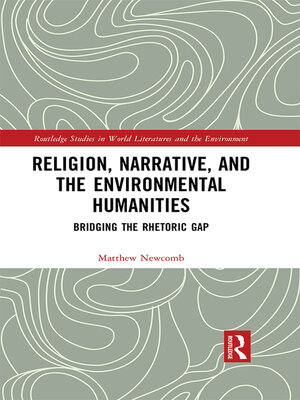Religion, Narrative, and the Environmental Humanities
ebook ∣ Bridging the Rhetoric Gap · Routledge Studies in World Literatures and the Environment
By Matthew Newcomb

Sign up to save your library
With an OverDrive account, you can save your favorite libraries for at-a-glance information about availability. Find out more about OverDrive accounts.
Find this title in Libby, the library reading app by OverDrive.



Search for a digital library with this title
Title found at these libraries:
| Library Name | Distance |
|---|---|
| Loading... |
Religion, Narrative, and the Environmental Humanities provides a fresh look at rhetoric, religion, and environmental humanities through narratives of evangelical culture, analyses of evangelical writing, and their connection to environmental topics. This volume aims to present a cultural understanding between evangelical and non-evangelical communities, exploring how environmental priorities and differences fit within the thinking and felt experiences of American evangelicalism. Offering a variety of theological topics, chapters include discussion of key themes such as eschatology, scriptural authority, or stewardship, and their relationship to evangelical thinking and conceptualization within climate change rhetoric. To help readers better access evangelicalism and translate these ideas, each chapter utilizes individual narratives located within evangelicalism to set an affective or experiential base for readers. In addition, this volume includes textual analysis of key documents within each section to further explore the environmental issues, values, and elements within the subculture of American evangelicalism. This volume will be essential for all scholars interested in bridging the gap of cultural translation and exploring the deep rhetorical roots of evangelical attitudes toward environmental issues.







